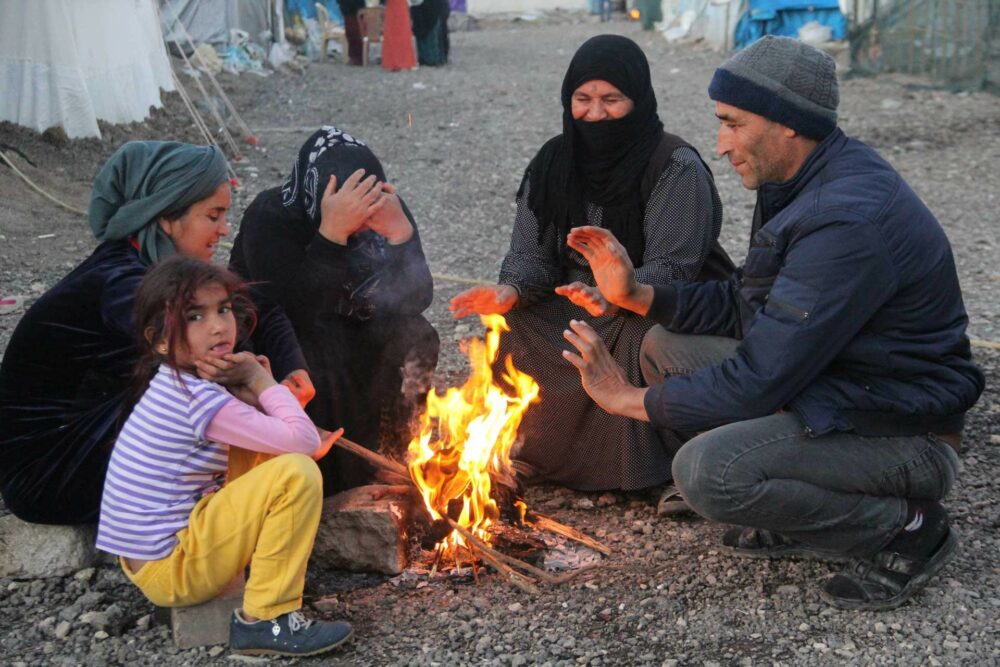
The power supply for a number of Syrian refugees living in a tent camp in Turkey’s southern Mersin province was cut by the Toroslar Electricity Distribution CO. (TEDAŞ) despite harsh winter conditions, the Mezopotamya News Agency (MA) reported.
TEDAŞ authorities were accompanied by a police escort to the camp and found 40 people using illegal electricity, upon which the officials confiscated their power cables.
The refugees, who were left without access to warm water or a means to cook, have since started cooking in pits and were unable to bathe themselves for days. One refugee, Ayşe Hasan, said they were helpless in the freezing winter weather.
“We have small children and newborn babies in these tents,” she said. “In the past we had electric heating, but now we need to light fires. We don’t have any wood so we are burning our clothes.”
Another refugee, Mustafa Ali, said there were sick residents who needed access to oxygen tanks and whose life depended on electricity. “Now we need to go to a [refugee] camp three kilometers away to hook them up to an electrical supply, but I don’t know what we will do in the event of an emergency,” he added.
Speaking to MA, Rojin Zeytinoğlu, spokesperson for the refugee commission of the Peoples’ Democratic Party (HDP), a left-wing party with majority Kurdish support, said it was inhumane to leave such vulnerable people in the cold without heat and warm water.
Most of the refugees in the camp work in the surrounding fields for 65 Turkish lira (approximately $8) a day, which is below the average wage.
Poor living conditions have had detrimental effects on the well-being of refugees. In some cases tents or container homes have been the scene of accidents such as fires. A Syrian couple living in a container lost their 6-month-old baby in a fire in October 2020.
Another Syrian family was trapped after a derelict building in which they sought refuge collapsed on January 19. The 60-year-old mother died and the children were rescued but were in critical condition.
An estimated 3.6 million refugees have been granted temporary protection in Turkey. The majority of them live outside camps, in precarious and challenging circumstances. The Turkish Red Crescent conducted a survey in 2018 which showed that most Syrian refugees were employed in irregular jobs that came with low wages as well as poor working conditions and exploitation.
According to a Brookings Institution report, over 64 percent of Syrian households live close to or below the poverty line.
Source: SCF



